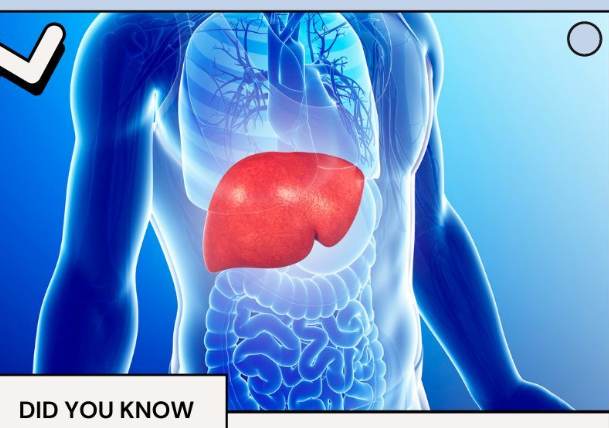Contents
Health Desk, SDO: When considering foods that are beneficial for liver health, it’s important to focus on a balanced and nutritious diet. The liver plays a crucial role in detoxifying our body and processing nutrients, so consuming the right foods can support its function. Here are some foods that are generally considered good for liver health:
Good food For Liver
- Leafy greens: Spinach, kale, arugula, and other leafy greens are rich in antioxidants and chlorophyll, which can aid in liver detoxification.
- Cruciferous vegetables: Broccoli, cauliflower, Brussels sprouts, and cabbage contain compounds that support liver function and detoxification.
- Garlic and onions: These contain sulfur compounds that activate liver enzymes, assisting in the detoxification process.
- Turmeric: The active compound curcumin in turmeric has anti-inflammatory properties that can benefit liver health.
- Beets: Betaine in beets supports liver function and helps protect the liver from fatty deposits.
- Fatty fish: Salmon, mackerel, and sardines are rich in omega-3 fatty acids, which reduce inflammation and may promote liver health.
- Nuts and seeds: Walnuts, almonds, chia seeds, and flaxseeds provide healthy fats and antioxidants beneficial for the liver.
- Olive oil: Cold-pressed extra virgin olive oil has been associated with improved liver enzyme levels.
- Green tea: Green tea contains catechins, which have been linked to liver health benefits.
- Whole grains: Foods like brown rice, oats, and quinoa provide fiber and nutrients that support liver function.
- Berries: Blueberries, raspberries, and strawberries are rich in antioxidants that can protect the liver from damage.
- Citrus fruits: Oranges, lemons, and grapefruits are high in vitamin C, which aids the body in producing glutathione, a compound that supports liver detoxification.
- Avocado: This fruit is rich in healthy fats and antioxidants that can benefit the liver.
- Lean proteins: Opt for lean sources of protein like chicken, turkey, tofu, and legumes to reduce the burden on the liver.
- Water: Staying well-hydrated helps the liver function properly by flushing out toxins.
You can do Chakrasana Yoga also.
Remember, while these foods can contribute to a healthy liver, it’s essential to maintain a balanced diet, exercise regularly, and avoid excessive alcohol consumption and high-sugar, high-fat foods, as they can negatively impact liver health. If you have specific liver health concerns or conditions, it’s always best to consult with a healthcare professional or a registered dietitian for personalized advice.
Bad Food for Liver
One of the main aspects of a healthy lifestyle is nutrition. So, you should be attentive to the foods that are present in the diet, especially in relation to their effect on the liver – one of the most important organs for processing and cleaning the human body.
The liver is a filtering organ that is responsible for metabolism, food processing, the synthesis of important substances and the purification of toxins from the body. Here are some examples of foods and habits that are generally considered bad for the liver:
- Alcohol: Excessive alcohol consumption is one of the most significant factors contributing to liver damage, including alcoholic fatty liver disease, alcoholic hepatitis, and cirrhosis.
- High-sugar foods: Foods and beverages high in added sugars, such as sugary sodas, candies, and pastries, can lead to non-alcoholic fatty liver disease (NAFLD) and insulin resistance.
- High-fat and fried foods: Consuming foods high in unhealthy fats and fried items can contribute to fat accumulation in the liver, potentially leading to non-alcoholic fatty liver disease.
- Processed foods: Many processed foods contain high levels of sodium, preservatives, and artificial additives, which can place stress on the liver.
- Trans fats: Found in partially hydrogenated oils, trans fats are harmful to the liver and overall health. Avoid foods like margarine, fried foods, and some packaged baked goods.
- Highly processed grains: Refined grains, such as white bread, white rice, and many cereals, lack fiber and nutrients and may contribute to liver issues over time.
- Soda and sugary drinks: These beverages are often loaded with added sugars and are linked to an increased risk of NAFLD.
- Excessive salt: High salt intake can lead to fluid retention and worsen liver cirrhosis in some cases.
- Red and processed meats: Large amounts of red and processed meats have been associated with an increased risk of fatty liver disease and liver cancer.
- Excessive caffeine: While moderate caffeine consumption is generally safe for most people, excessive intake can be hard on the liver.
- Unregulated herbal supplements: Certain herbal supplements can harm the liver or interfere with its function. Always consult a healthcare professional before taking any supplements.
- Unprescribed medications and drugs: Some medications and recreational drugs can damage the liver. Always take medications as prescribed and avoid illicit drugs.
- Excessive fast food consumption: Fast food often contains high levels of unhealthy fats, salt, and additives that can negatively impact liver health.
- Unpasteurized/raw seafood and meats: Consuming raw or undercooked foods can increase the risk of foodborne illnesses that may harm the liver.
You would also like to read: Red Spots in Eyes: Causes and Treatment.
In addition, foods high in cholesterol and saturated fat can also have a negative effect on the liver. In some cases, eating these foods can lead to the accumulation of fats in the liver, which can cause inflammation and damage to the organ.
Despite the factors that can have a negative effect on the liver, it is important to remember that every body is different. Consulting with a doctor or dietitian can help develop a personalized nutrition plan that takes into account all your characteristics and health needs.
It’s important to note that occasional indulgence in unhealthy foods may not have a significant impact on a healthy liver, but chronic and excessive consumption can contribute to liver damage over time. If you have concerns about your liver health or diet, seek advice from a healthcare professional or a registered dietitian. They can provide personalized guidance based on your specific health needs.

